A teacher by choice and not by chance, Oluwaseyi Anifowose convened the recent Let There Be Teachers conference which entered the record books as the largest ever gathering of teachers anywhere in the world. However, the motivation behind this rather remarkable achievement was not just to break or hold a Guinness World record, but to amplify the voice of teachers, such that it would become too loud to ignore. Having served as a school principal for 10 years, Anifowose understands only too well the angst of teachers and decided some years back to repurpose his life to calling for far better welfare, greater recognition and deeper respect for members of the teaching profession. Afterall, education is the social pillar without which none of the other social pillars can stand. The opportunity granted EduTimes Africa to delve into the mind of this extraordinary crusader during the course of this exclusive interview was indeed one of much delight.
Please tell us a little bit about yourself.
I am Oluwaseyi Anifowose, a teacher and dedicated Education Advocate. Convener of Let there be Teacher Conference 2025, Director of Strategic Partnerships at 1 Millions Teachers. My work is driven by a mission to restore the dignity and value of the teaching profession in Nigeria.
Your Let There Be Teachers Conference 2025 made history by setting a Guinness World Record.
What inspired the idea of convening the largest gathering of teachers in the world, and what moments from that day stand out to you as truly unforgettable?
The inspiration for convening the world’s largest gathering of teachers was a commitment to dignify, elevate, and mobilize the teaching profession in Nigeria for national development. Essentially, the gathering was intended to amplify the urgent call for greater recognition, better welfare, and policy support for educators across the country.
Teacher Resilience: I was moved by educators who endured adverse conditions— sun, and long lines—refusing to back down, proving the profession’s tenacity.
Symbolic Significance: The use of Tafawa Balewa Square (TBS), Nigeria’s independence ground, positioned the celebration of teachers as a pivotal national moment.
Collective Dignity: The climax was the sense of unified purpose, where we declared teachers are the “soul of our nation” in a powerful affirmation of their worth.
The gathering served as a global statement that teachers are visible, valued, and ready to insist on their dignity and policy support.
This event marked a victory for education, translating a massive turnout into momentum for national policy advocacy.

You’ve transitioned from being a classroom teacher and school principal to becoming a global education policy advocate.
How did your early experiences in the classroom shape your current vision for teacher empowerment and education reform?
My early experiences in the classroom, coupled with a key mentorship moment, directly shaped my vision for teacher empowerment and education reform.
- Motivation by Choice, Not Chance: , “I started my career as a teacher many years ago. The things I saw were not the things I expected. I normally would say that I am a teacher by choice and not by chance.”
- The Inequity of Recognition: My time in the classroom revealed a fundamental issue: “I feel that teachers don’t get the kind of respect and recognition they deserve.”
- A Personal Turning Point: I credit my teacher for inspiring my life. In my opening remarks at the conference, I recounted that my life was “transformed in Primary Six by my late teacher, who inspired me to believe in myself .” This encounter motivated my choice to pursue teaching.
- Vision for Reform: This personal conviction; that a single teacher can change a life, led to his current vision: “Education is the backbone of any nation, and at the core of education are the teachers. So, when you need quality education, you must have quality teachers.”

Your book “Let There Be Teachers!” is a clarion call to restore the dignity of educators.
Why do you believe teacher dignity has eroded over time, and what practical steps can governments and societies take to rebuild it?
- Low Societal Respect and Recognition: I feel strongly that educators “don’t get the kind of respect and recognition they deserve.” Despite being the foundation of national progress, teachers are often undervalued, leading to low morale and high attrition rates.
- Weak Investment and Policy Neglect: This is a tangible manifestation of disrespect. The system suffers from
Practical Steps For Government and Societies
- Poor Welfare and Pay: Teachers face “low pay, attrition, and lack of recognition.”
- Compromised Quality of Entry: The profession often settles for the lowest standards, arguing that the Faculty of Education has become a “dumping ground” where students with the lowest entry scores (JAMB cut-off marks) are directed.Elevate Entry StandardsAdvocate for a higher bar for entry into colleges of education, ensuring the nation attracts and trains its “best brains” to become future educators.Implement Teacher-Led PolicyCreate a teacher-led education agency and ensure that experienced classroom professionals are included in the curriculum design and policy-making process
- Push for policy reforms focused on teacher welfare, funding, and infrastructure development to tangibly reflect the value of their contribution to national growth.
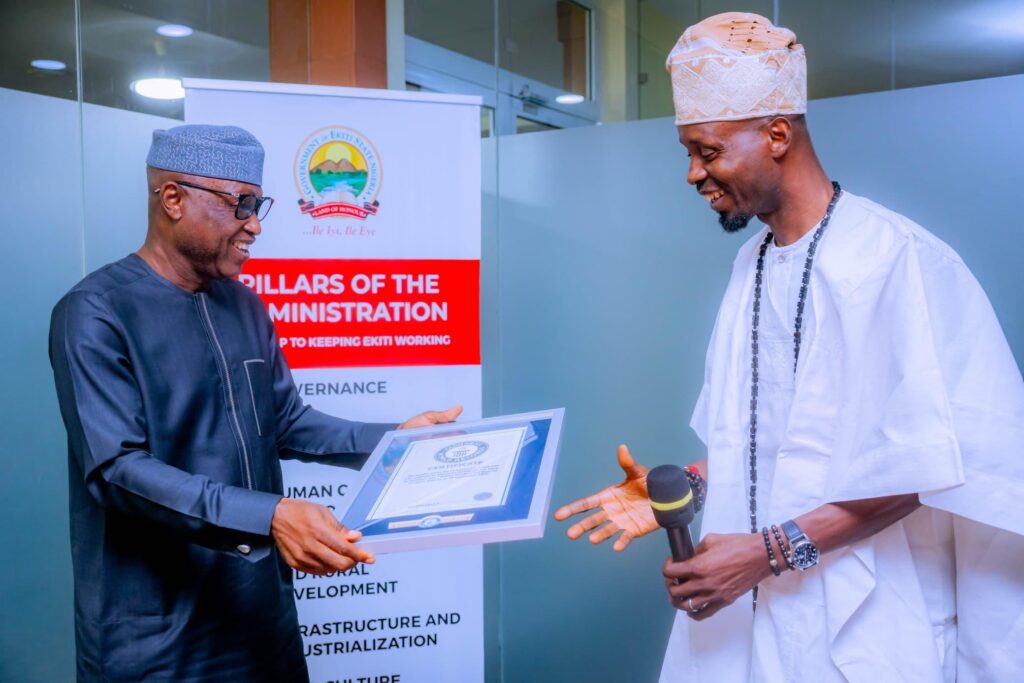
Many young people are losing interest in teaching. What must be put in place to make the teaching profession more attractive for the next generation?
- Elevating Professional Status and Standards: We must reverse the perception of teaching as a last resort by raising admission standards for teacher training to attract the “best brains,” and by granting teachers a central role in policy and curriculum design to make it an autonomous and respected profession.
- Ensuring Financial Dignity and Welfare: We must implement competitive and timely remuneration that is commensurate with qualifications, and improve the working environment and infrastructure (addressing overcrowded classrooms and poor facilities). This ensures that teachers can live with dignity and are not forced to abandon the profession due to financial hardship.
As Director of Strategic Partnerships at 1 Million Teachers Inc., you lead initiatives that impact teachers across Africa.
Can you share one partnership or project that has had a particularly transformative effect — and what made it succeed?
The 1 Million Teachers Black Belt Professional Development Program is a significant, ongoing initiative designed to revolutionize education across Africa by cultivating a highly skilled, motivated, and socially conscious cohort of educators. The program’s success is amplified by its strategic partnership with HP and Girl Rising, particularly through the HP Mentor A Teacher (HPMAT) Program.
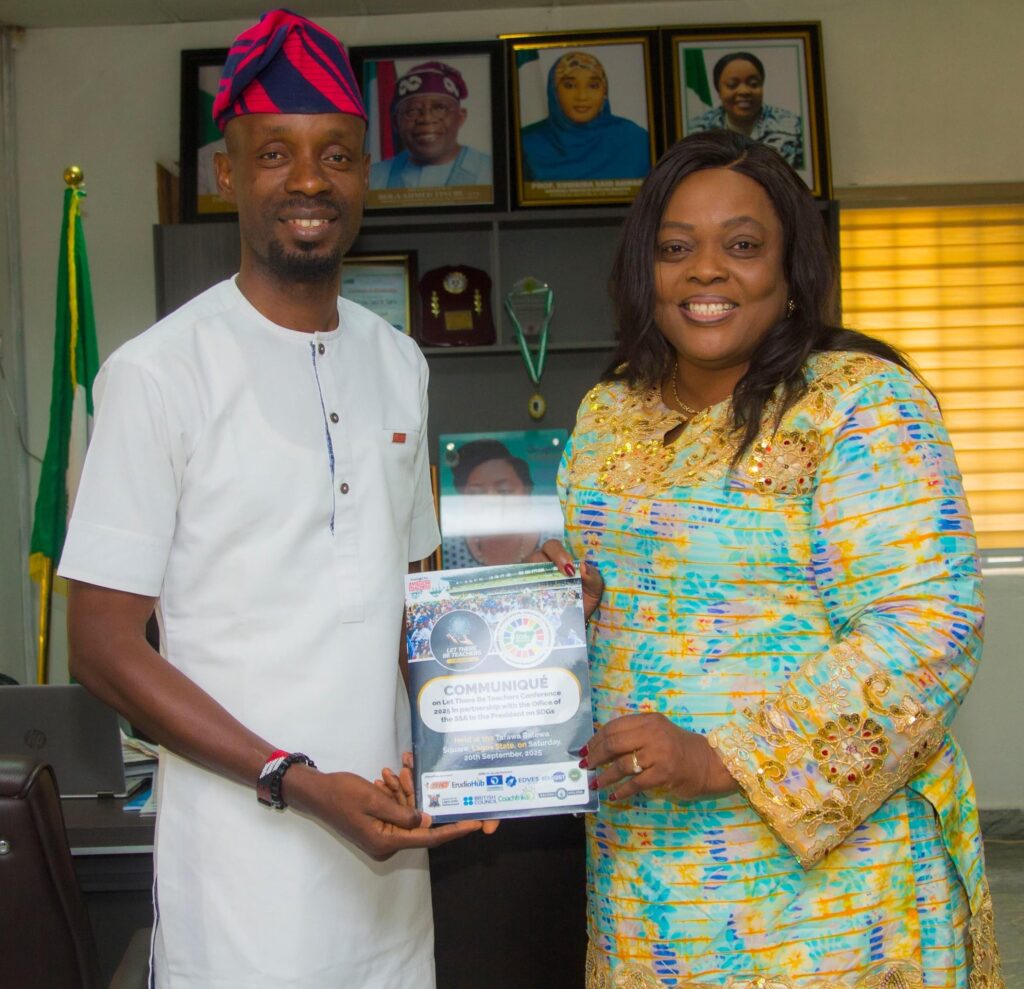
Education reform often sits at the intersection of policy and human passion.
How do you balance working with bureaucratic systems while keeping the focus on the human side — the teachers themselves?
Your question addresses a core theme of the Let There Be Teachers Conference 2025: elevating the status of the teaching profession and driving policy reform. The balance between bureaucratic systems and the human element—the teachers themselves—is managed by making the educators the central focus of both the challenge and the solution.
Balancing Policy and People
Based on the objectives and outcomes of the conference, my approach to balancing bureaucratic systems with the human focus on teachers is through a two-pronged strategy: Celebration and Advocacy.
1. Focusing on the Human Side: Celebration and Recognition
The starting point is recognizing the intrinsic value and passion of teachers, thus addressing the human side directly:
Elevating the Status: The entire initiative is fundamentally about restoring the dignity and respect teachers deserve. As I have noted, “teachers don’t get the kind of respect and recognition they deserve.” By celebrating teachers on a massive scale (such as setting the Guinness World Record for the largest gathering of teachers), we make a powerful statement that they matter—”This is more than a number. It is proof that teachers matter.”
Celebrating Resilience: The event highlighted teachers’ dedication (“Teachers stood in the rain, braved the sun, and endured long verification lines. to achieve this record”). This collective effort grounds the movement in the lived experiences and passion of the educators.
Redefining the Narrative: We aim to shift the public and policy perception of teaching from a last-resort job to a mission and a noble calling. When the public values the teacher, it creates external pressure that influences policy makers.
2. Working with Bureaucracy: Advocacy and Action
To work with bureaucratic systems, the human element is translated into concrete, actionable policy demands driven by teacher consensus:
- Translating Passion into Policy: The energy and mass gathering of teachers are channeled into a structured ‘Call to Action Community.’ This collective voice is transformed into a formal document for engagement with the National Assembly and other relevant agencies.
- Targeted Reform Advocacy: The reform agenda is focused on systemic issues that directly impact teachers’ welfare and professional quality. For instance, we are advocating for an elevated standard of entry into teacher training colleges, arguing that the profession should not “settle for the lowest cut-off marks” for teacher education. This directly links teacher quality (a policy issue) back to the value placed on the teacher (a human issue).
- Securing Buy-in from Government: By involving key stakeholders—like state governors, education ministers, and teacher unions—we ensure that the advocacy is not adversarial but is integrated into the existing policy dialogue. This cooperation is essential for ensuring policy change is adopted and implemented by the system
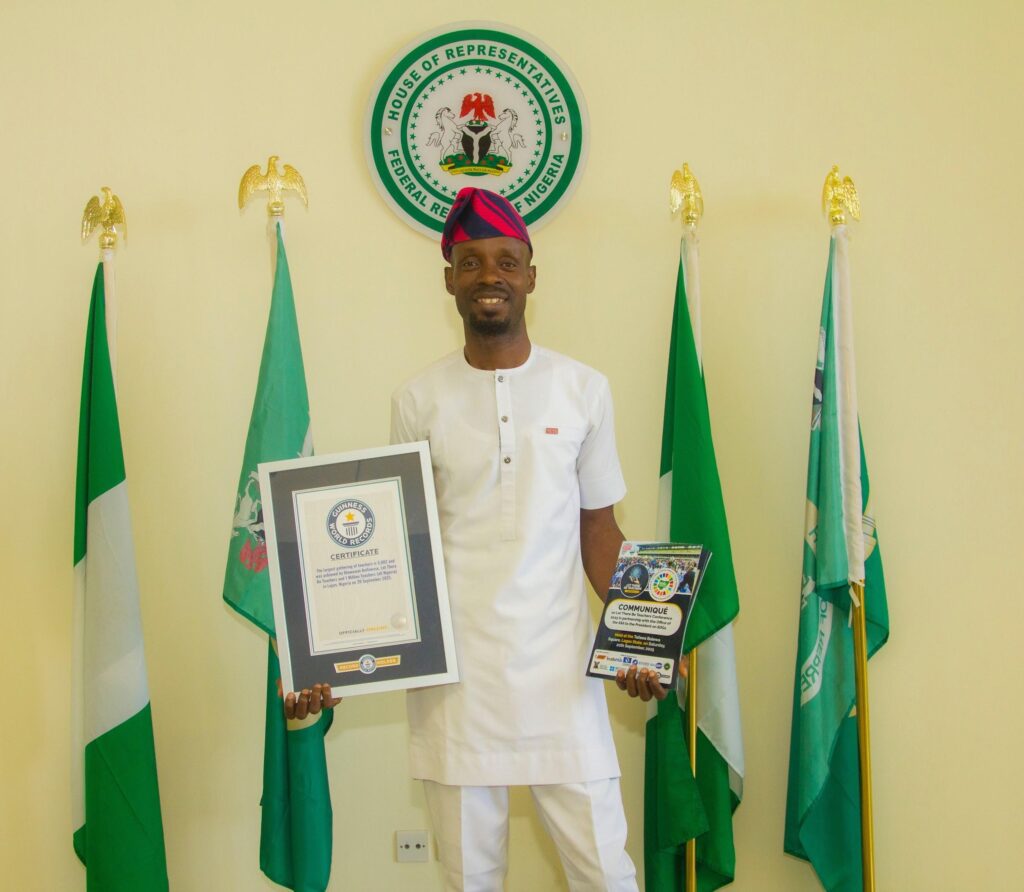
Every reformer faces resistance.
What has been your most significant challenge in pushing for systemic education change in Nigeria or Africa, and how did you navigate it?
My most significant challenge in pushing for systemic education change in Nigeria or Africa is the persistent undervaluing and lack of investment in teachers’ welfare, training, and retention. And the low societal and policy priority given to the teaching profession.
As the Convener of the “Let There Be Teachers Conference we are navigating this challenges by adopting a strategy of for Policy Advocacy and Dignity
- Elevating the Discourse: We are scaling the event to force the issue of teacher welfare and policy support onto the national agenda, inviting key stakeholders, including government agencies, policymakers, and teacher unions, to dialogue
- Translating Momentum into Legislative Action: Following the record-breaking gathering, Our next step is to use the movement’s momentum to engage the National Assembly directly.
- Action: This is an explicit plan to push for policy and legislative reforms aimed specifically at boosting teachers’ welfare, improving funding, and developing infrastructure in the education sector.
In your view, what does the “teacher of the future” look like — in terms of mindset, skills, and impact on society?
- Mindset: The Resilient Leader: Possesses a renewed sense of dignity, pride, and urgency in their identity. They believe, “For schools to grow, teachers must grow
- Skills: The Digital and Collaborative Expert Proficient in technology integration and committed to continuous capacity building. They actively collaborate with all education stakeholders for innovation.
- ImpactThe Systemic Reformer: Extends their influence beyond the classroom to drive policy change(especially on welfare and funding) and ensure that their efforts contribute to building a globally competitive education system.
The Guinness World Record is a remarkable milestone, but movements require continuity.
What’s next for Let There Be Teachers and for you personally in advancing the cause of education transformation in Africa?
The Next Phase for Let There Be Teachers: Policy Advocacy
The world record is seen not as the end goal, but as the catalyst for the next phase, which is focused on influencing legislation and policy implementation.
- Targeted Legislative Engagement: My team will reveal explicit plans to engage the National Assembly (Nigeria’s federal legislature).
- Goal: To push for concrete policy reforms that are aimed at fundamentally improving Nigeria’s education system and boosting teachers’ welfare. This translates the momentum and visibility of the movement into actionable, systemic change.
- Focus on Teacher Welfare and Funding: The advocacy will concentrate on addressing the core issues highlighted by the conference: inadequate funding, poor teacher remuneration, and insufficient infrastructure in the education sector.
- Sustained Public Dialogue: The movement will continue to use its platform to ensure the issues of teacher recognition and support remain “on the front burner of policy and dialogue nationally.”
Personal Role in Education Transformation in Africa
My commitment is to ensure the symbolic victory of the World Record translates into real-world progress for educators, both in Nigeria and across the continent.
- Translating Recognition into Change: “We have made history, but now we must make progress.” My personal focus is to spearhead the effort to turn the global attention drawn by the record into meaningful, long-term reforms.
- Inspiring Professionals (Through Let there be Teachers): My organization will continue its mission to train, support, and celebrate educators across Africa. The goal is to inspire young professionals to view teaching as a noble and impactful career, helping to address the continent’s severe teacher shortage
- Championing Teachers as Nation Builders: I am committed to reframing the public discourse—using the record as “proof that teachers matter”—to cement the perception of teachers as the “ones who carry the future in their classrooms” and must be safeguarded as a national priority.
In summary, the movement is transitioning from a successful, large-scale demonstration of teachers’ collective power to a focused, sustained effort to lobby for laws and policies that will improve the quality of life and professional standing for teachers.
_______________________ Oluwaseyi Anifowose is a Guinness World Record holder for convening the Largest Gathering of Teachers in the World — a historic achievement realized through the Let There Be Teachers Conference 2025, which brought together thousands of teachers at the iconic Tafawa Balewa Square, Lagos. This landmark event not only celebrated the teaching profession but also ignited a national movement for teacher empowerment, policy reform, and education transformation across Nigeria and Africa. He is a dynamic education policy expert, thought leader, and advocate for teacher development and systemic education reform. As the Director of Strategic Partnerships at 1 Million Teachers Inc., Canada, Oluwaseyi leads high-impact collaborations that promote teacher excellence, professional growth, and equitable learning outcomes across Africa. With over a decade of experience spanning roles as a classroom teacher, head of department, and school principal, he has evolved into a respected education consultant, partnering with state Ministries of Education, development partners, and education agencies to design and implement transformative teacher-focused programs. Oluwaseyi is also the author of the inspirational book “Let There Be Teachers!”, a rallying call to restore the dignity, passion, and purpose of educators. His voice and thought leadership have been featured on major national and international platforms, including Channels TV, Arise TV, TVC’s Your View, and TVC Breakfast Show where he shares insights on education transformation, teacher welfare, and public sector leadership. A regular keynote speaker, trainer, and media contributor, Oluwaseyi is on a mission to raise a new generation of teachers who illuminate minds, inspire change, and transform generations — one child at a time.




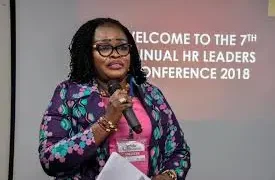

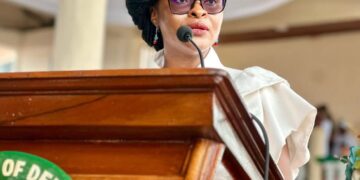























































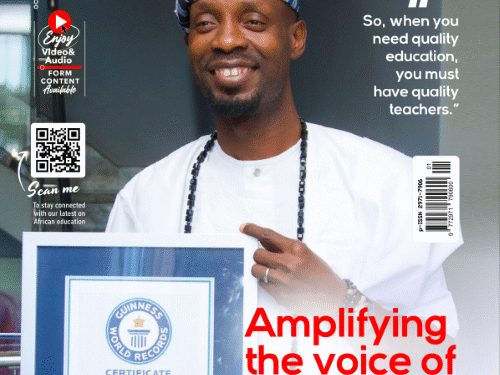





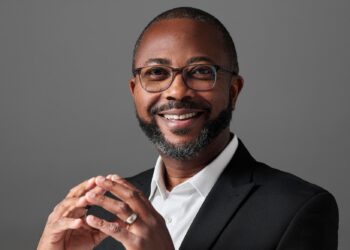
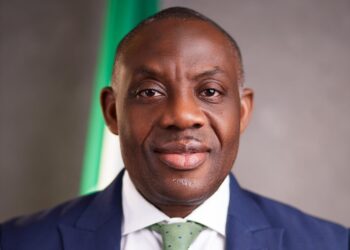

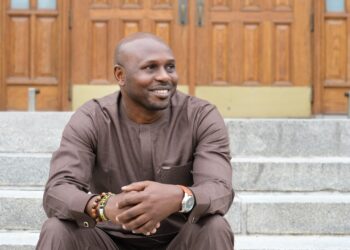











 EduTimes Africa, a product of Education Times Africa, is a magazine publication that aims to lend its support to close the yawning gap in Africa's educational development.
EduTimes Africa, a product of Education Times Africa, is a magazine publication that aims to lend its support to close the yawning gap in Africa's educational development.